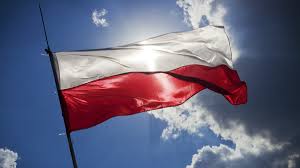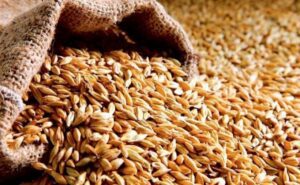
Ukrainian President Volodymyr Zelensky discussed with Kenyan President William Ruto the creation of hubs for Ukrainian grain in African ports.
“Held a meeting with the President of Kenya William Ruto. Thank you for participation in the Peace Summit and a principled position of support for the sovereignty and territorial integrity of Ukraine,” – wrote Zelensky in his Telegram channel on Sunday night.
The Ukrainian head of state noted that at the meeting they discussed food security issues, which are very important for both countries, the development of Ukrainian-Kenyan relations and projects in the field of agricultural exports.
In addition, the parties considered the possible participation of Kenya in the creation of hubs for Ukrainian grain in African ports.
AFRICA, hubs, President of Kenya, PRESIDENT OF UKRAINE, UKRAINIAN GRAIN

It is advisable for Poland to maintain the blockade on Ukrainian grain imports, but transit should be allowed when transshipment capacities are free in Polish ports, President of the Grain and Feed Chamber of Poland Monika Pątkowska said in an interview with farmer.pl.
“Today it would be better if the blockade of grain imports is maintained, and when it comes to transit, we could implement it to some extent and thus help Ukraine when we have free handling capacities in Polish ports,” she said.
Pętkowska noted that Polish ports were not 100% loaded in the first quarter of 2024.
“We have to conclude that our port infrastructure, but also the railroad infrastructure is inefficient. Now is the right time to expand it. I believe that we slept through the last two years in this context. Romania has received funds from the European Union and is expanding its infrastructure, while Poland has not done it so far,” the public figure emphasized.
She is sure that Poland should show both Ukraine and the international community that it wants to help effectively but, on the other hand, firmly protects the interests of the Polish farmer. These two goals, in her opinion, should be combined.
“The sooner we come to a mutual understanding, the sooner we develop mechanisms, the less complicated will be the atmosphere that may hinder our broader cooperation not only with Ukraine, but also in the European arena,” summarized the president of the Polish Grain Chamber.

The EU countries have not yet been able to agree on the upper limit of duty-free imports of Ukrainian grain, as well as the need to extend restrictions to other products from Ukraine, the German edition of n-tv reported. “In the debate on the upper limit of duty-free imports of Ukrainian grain, the 27 EU countries continue to disagree,” the publication said.
The German media cite information from European diplomats who say that there is also no clear majority among member states on the European Parliament’s proposal to extend the restrictions on poultry meat, eggs and sugar from Ukraine proposed by the European Commission in January.
Polish Radio’s correspondent in Brussels, Beata Plomecka, also confirmed that the European Parliament, influenced by farmers’ protests across Europe, last week backed an amendment to the regulation on Autonomous Trade Measures submitted by Polish MEP Andrzej Galicki.
MEPs agreed to impose import restrictions on sensitive goods, notably honey, a range of cereals, poultry meat, chicken eggs and sugar.
Poland is also lobbying to tighten import quota requirements for Ukrainian sensitive agri-commodities by using data on Ukrainian imports not only for the years 2022-2023, but also 2021, before Russia’s full-scale invasion, when there were no massive shipments of agricultural products from Ukraine.
“However, this support is absent among member states. Only Poland and the ‘frontline’ countries are demanding that the demands of the European Parliament be taken into account. At best, most countries want to reduce from three weeks to two the Commission’s mandate to impose a ban on EU imports of products whose imports destabilize the market situation,” Polish Radio stressed.” Negotiations on a possible restriction of imports of Ukrainian agricultural products in the European Council are scheduled for Tuesday evening.
As reported, in many EU countries since January 2024 there have been mass protests of farmers, who express dissatisfaction with the “green” course of the European Commission and the rise in the price of material and technical resources. One of their demands is to strengthen control over alleged unfair competition from Ukraine. Farmers claim that Ukrainian products that were once destined for Africa or the Middle East now remain in Europe, undermining the position of local producers. They also point out that Ukrainian producers are not subject to the EU’s higher environmental and social standards.

The first ship with 25 thousand tons of Ukrainian grain has arrived to Ethiopia within the humanitarian program “Grain from Ukraine” of Ukrainian President Vladimir Zelenskyi, the press service of the President said.
“The first ship in the framework of the Ukrainian humanitarian program “Grain from Ukraine” on December 3 arrived in Ethiopia, delivering 25 thousand tons of Ukrainian wheat to the port of Dorale,” – said in the message.
Zelensky announced this program on November 15 during the G20 summit.
The second vessel, the loading of which is completing in the Ukrainian port of Chernomorsk, will go to Ethiopia next week with 30 thousand tons of wheat on board.
The third vessel will deliver 25 thousand tons of humanitarian wheat to Somalia (loading in Odessa port).
“In total, in the framework of the humanitarian initiative “Grain from Ukraine” our state plans to send more than 60 ships to Ethiopia, Sudan, South Sudan, Somalia, Congo, Kenya, Yemen, etc.,” – said in the message.
It is noted that more than $180 mln was attracted for implementation of this program.

President of Ukraine Volodymyr Zelensky said that the implementation of the grain initiative to export Ukrainian grain made it possible to reduce the severity of the food crisis.
“It is very important that the grain export initiative yields results. Since the beginning of its implementation, 16 vessels with grain for seven countries on three continents have already left Ukrainian ports. This is Europe, Asia, Africa,” he said in a traditional video message on Saturday.
According to him, “almost half a million tons of agricultural products are on board: corn, wheat, sunflower oil, soybeans and other goods that are absolutely necessary on the world market.”
“This has already made it possible to reduce the acuteness of the food crisis, gave some hope for peace to the countries that consume our agricultural products. And in the future, it can help to completely remove the food crisis from the global agenda,” he said.
Of course, the president noted, “if the partners ensure the implementation of the safe part of the initiative and prevent Russian provocations and terror at sea or against our ports.”
Zelensky noted that “the first ship has already arrived for loading under the UN World Food Program – this is the supply of grain, in particular, for Ethiopia, where the situation with hunger is especially severe. Now the vessel is being prepared for departure from the Yuzhny port.
According to him, “in less than two weeks, our three ports – Odessa, Chornomorsk and Yuzhny – managed to export such a volume that is equal to all agricultural exports by road in July and more than two-thirds of exports by rail over the past month” .
“These are jobs for our people, these are the funds that are needed for our sowing next year, and this is our state budget revenues. Increasing economic activity is an indispensable element on the path to victory,” the president said.

U.S. Ambassador to Ukraine Bridget Brink had a “valuable discussion” with Infrastructure Minister Oleksandr Kubrakov on negotiations with UN and Turkey on establishing grain transport corridors through the Black Sea.
“Ukraine is ready to export grain to countries in need; the United States continues engaging with partners to provide safe passage for grain,” she said on Twitter on Saturday following the discussion.
In addition, Brink met with Mayor of Kyiv Vitali Klitschko. “So proud to call the beautiful city of Kyiv our home… With victory, we can’t wait to realize Kyiv’s future as a great European capital,” the U.S. Ambassador said.